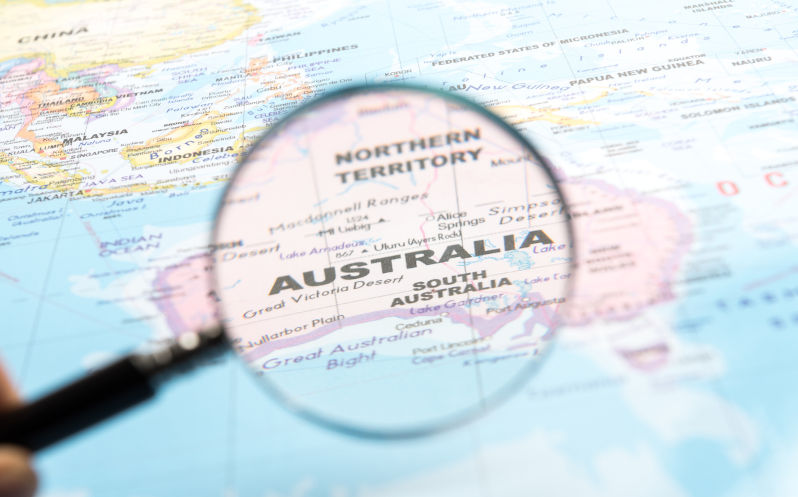I hesitate to stray into the florid world of military strategists, senior public servants, cabinet ministers and assorted think tanks, but what on earth is going on with Australia’s so-called defence policy? The Albo government seems hellbent on turning Australia into a militarised outpost of the US whose ‘pivot’ to the Asia-Pacific region has led to the installation of all manner of hardware and personnel.
Yes, belligerence is in the air. And the protagonists await their parts in yet another grotesque theatre of war. Australia’s props are in place, or getting there: nuclear-capable B52s and 2,200 more US troop in the top end, $368 billion on nuclear powered subs (forthcoming), the production of Guided Multiple Launch Rocket Systems by 2025, and now the purchase of over a billion dollars’ worth of 220 Tomahawk cruise missiles.
All this testosterone-fuelled investment is apparently required to offset the threat posed by the People’s Republic of China whose expansionist ambitions are, we’re told, posing an imminent threat to regional peace. There’s even talk that the People’s Army could attack Australia and other territories should things heat up. Quite why China would do this remains a mystery. No matter, the drumbeat of war is loud and insistent – at times, bordering on the deafening. Military experts and senior government ministers, along with their media toadies, continue to depict China as the biggest threat to global peace since the Soviet Union.
Now I know I’ll be accused of anti-Americanism for saying this, but how does China’s supposed threat stack up against America’s shenanigans over recent decades? Sure, China supported the Vietnamese in their struggle against US aggression, and it’s treading a fine line in relation to Russia, and of course there’s Tibet and sabre rattling in relation to Tawain. But I can’t recall China regularly traversing the world to unseat democratically elected governments, or bank rolling death squads, military juntas and various opposition groups. Can China’s incursions really compare to what the US and its allies have done since WW2? This is not about moral equivalence or a tallying of the historical record, but rather it’s about who’s doing what and how often. Just imagine if, like the US, China had several hundred military bases dotted around the world. What if many of these bases faced mainland US? This is exactly what China is experiencing. Should we be surprised that this might be considered as a threat?
Also, as Paul Keating observed, is it not the case that China, as a sovereign state, has the right to build up its military and naval forces which, apart from the latter, are yet to match the dominance of the US? The US remains the world’s preeminent military power, committing vast amounts of its national income toward building a formidable war machine. I don’t hear western leaders screaming about this as a threat to global peace. Perhaps they have bought the line that the US has a direct line to the almighty – a view echoed in various US-authored doctrines.
Now before I hear you saying, what about the Uyghur and terrible human rights abuses in China; well, yes, of course these are unacceptable. And, yes, China has made ‘soft power’ incursions into other countries through its ‘Belt and Roads’ programme, just as western nations over many decades have sought influence and trading relations with multiple countries. When the Solomon Islands recently signed diplomatic agreements with China, all hell broke loose, even though Australia’s influence in that Pacific nation, as well as others in the region, has been present for decades. When I was in the Solomon Islands back in the early 90s, the streets, cafes and market places were crowded with Australian police officers, soldiers, aid workers and diplomatic staff. This was seen as a peace-keeping initiative and not as a potential trigger for regional conflict.
The truth is, as a citizen of a nation that has clearly allied itself to the foreign policy imperatives of the US, I feel less safe than I once did. After all, it doesn’t take a military expert to conclude that if we muscle up militarily alongside the US against China, then of course Australia will become a target, should open warfare occur. Why then, have we put ourselves in this position? Why has Australia outsourced its sovereignty? Why is there so much talk of war, and not peace, as Stuart Rees has argued? Why can’t Australia declare itself a neutral state, stop cosying up to imperial powers, putting our soldiers in harm’s way for less than noble reasons (Iraq, Korea, Vietnam).
It’s amazing how quickly money can be found for purposes of war. The Albo government is reluctant to raise welfare benefits but has no problem finding billions for military expansion, or (almost overnight) $200m to increase women’s participation in sport (a good thing, by the way).
The bigger question though is when will Australia grow up and see itself as a truly independent state that doesn’t blindly follow the diktats of the US? What are the deep origins of its geopolitical insecurities: the second world war, its small population, and its modest military strength? Who knows. Australia has followed the US into at least four major international conflicts since the second world war, all of which ended disastrously, with lasting consequences. You’d think we’d have learnt our lesson by now. But no. Albo says that investing in weaponry will make us “stronger”, that it’s a sign of a “mature nation”. I think he’s wrong. Real strength and maturity come from the realisation that as an independent nation we can exercise agency. Perhaps we should exercise that agency in relation to the life-altering threat posed by the climate emergency. Here’s an idea; why doesn’t Australia play a key role in brokering an agreement between China and the US to save the planet from the worst ravages of this emergency?
Jaw-jaw, not war war.
Adjunct Professor, School of Health Sciences and Social Work,
Griffith University (Gold Coast Campus).
Adjunct Professor, Southern Cross University, Faculty of Business, Law and Arts.

